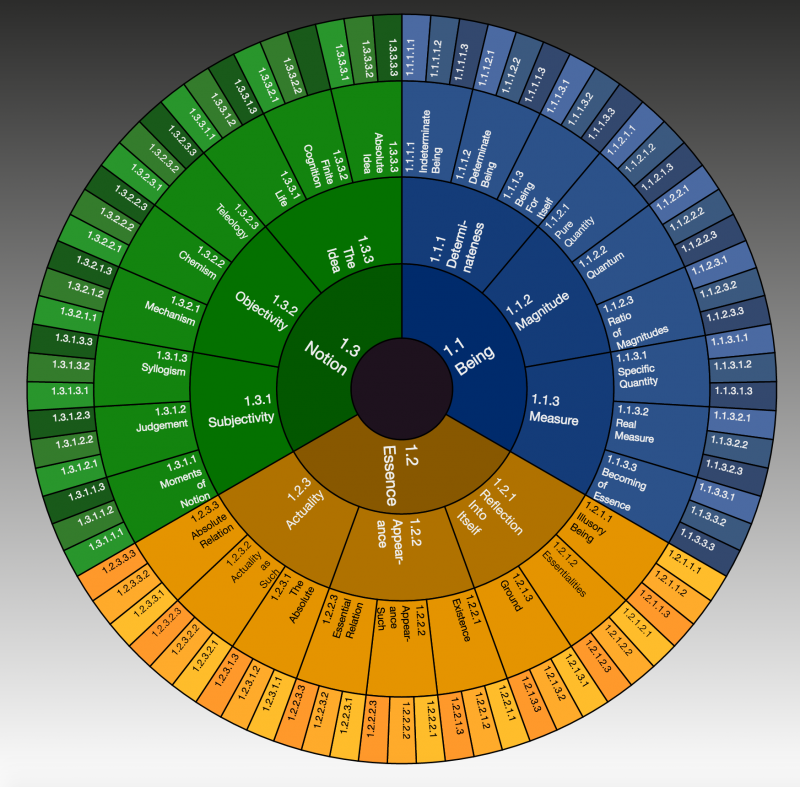In one school of popular reasoning, people judge historical outcomes that they think are favorable as worthy tradeoffs for historical atrocities. The argument appears in some of the most inappropriate contexts, such as discussions of slavery or the Holocaust. Or in individual thought experiments, such as that of a famous inventor whose birth was the result of a brutal assault. There are a great many people who consider this thinking repulsive, morally corrosive, and astoundingly presumptuous. Not only does it assume that every terrible thing that happens is part of a benevolent design, but it pretends to know which circumstances count as unqualified goods, and which can be blithely ignored. It determines future actions from a tidy and convenient story of the past.
We might contrast this attitude with a more Zen stance, for example, a radically agnostic “wait and see” approach to everything that happens. Not-knowing seems to give meditating monks a great deal of serenity in practice. But the theory terrifies most of us. Effects must have causes, we think, causes must have effects, and in order to predict what’s going to happen next (and thereby save our skins), we must know why we’re doing what we’re doing. The deep impulse is what psychologist and psychotherapist Viktor Frankl identifies, in his pre-gender-neutrally titled book, as Man’s Search for Meaning. Despite the misuse of this faculty to create neurotic or dehumanizing myths, “man’s search for meaning,” writes Frankl, “is the primary motivation in his life and not a ‘secondary rationalization’ of instinctual drives.”
Frankl understood perfectly well how the construction of meaning—through narrative, art, relationships, social fictions, etc.—might be perverted for murderous ends. He was a survivor of four concentration camps, which took the lives of his parents, brother, and wife. The first part of his book, “Experiences in a Concentration Camp,” recounts the horror in detail, sparing no one accountability for their actions. From these experiences, Frankl draws a conclusion, one he explains in the interview above in two parts from 1977. “The lesson one could learn from Auschwitz,” he says, “and in other concentration camps, in the final analysis was, those who were oriented toward a meaning—toward a meaning to be fulfilled by them in the future—were most likely to survive” beyond the experience. “The question,” Frankl says, “was survival for what?” (See a short animated summary of Frankl’s book below.)
Frankl does not excuse the deaths of his family, friends, and millions of others in his psychological theory, which he calls logotherapy. He certainly does not trivialize the most unimaginable of in-human experiences. “We all said to each other in camp,” he writes, “that there could be no earthly happiness which could compensate for all we had suffered.” But it was not the hope of happiness that “gave us courage,” he writes. It was the “will to meaning” that looked to the future, not to the past. In Frankl’s existentialist view, we ourselves create that meaning, for ourselves, and not for others. Logotherapy, Frankl writes, “defocuses all the vicious-circle formations and feedback mechanisms which play such a great role in the development of neuroses.” We must acknowledge the need to make sense of our lives and fill what Frankl called the “existential vacuum.” And we alone are responsible for writing better stories for ourselves.
To dig deeper in Frankl’s philosophy, you can read not only Man’s Search for Meaning but also The Will to Meaning: Foundations and Applications of Logotherapy.
Related Content:
Albert Camus’ Historic Lecture, “The Human Crisis,” Performed by Actor Viggo Mortensen
Josh Jones is a writer and musician based in Durham, NC. Follow him at @jdmagness


